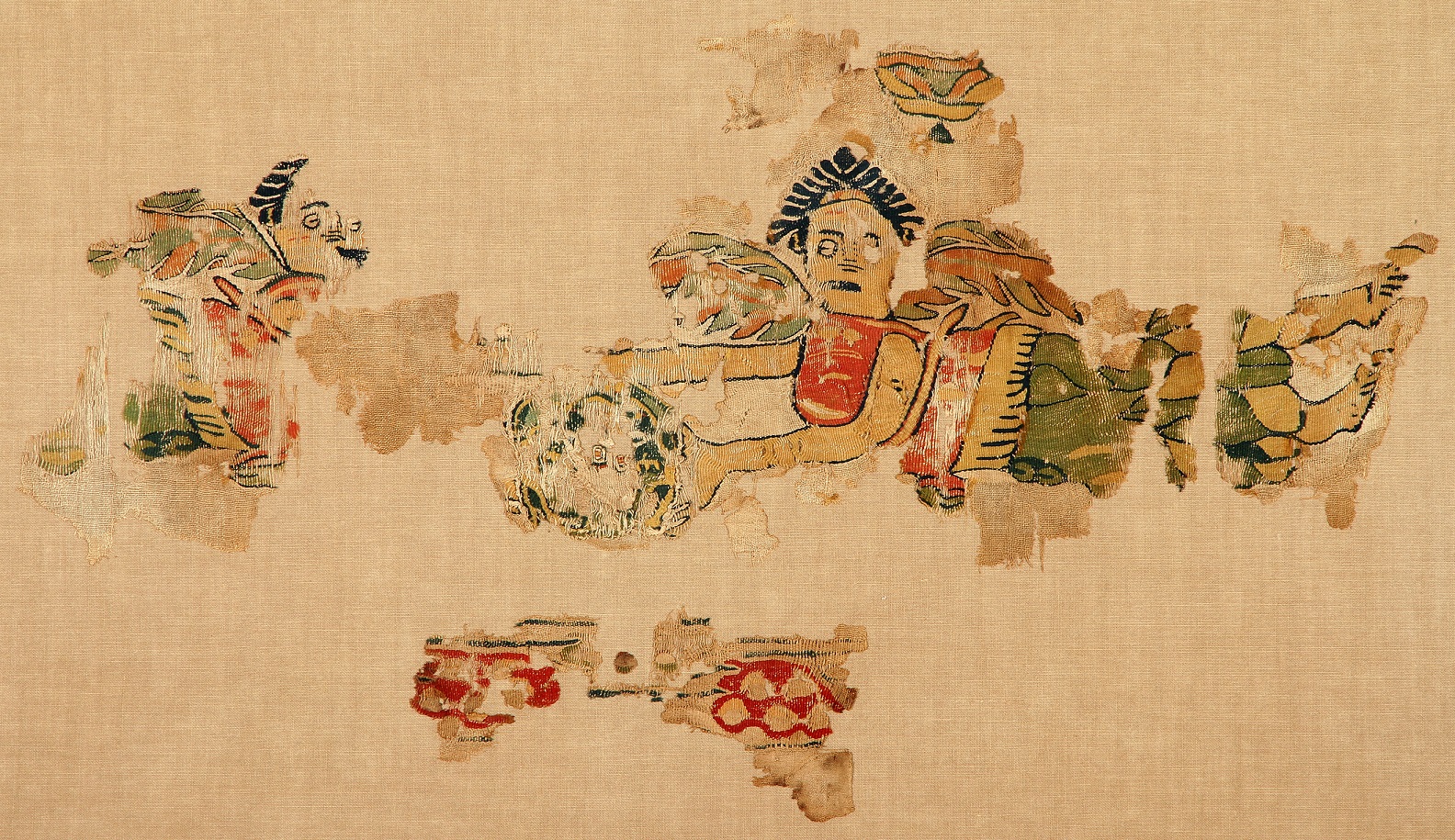Two winged, flying figures face each other. Each holds a green crown, an allegory for immortality derived from classical Greco-Roman iconography, which Christian culture appropriated through the representation of Christ’s bust and the cross. Here, the missing motif in the crown prevents certitude about one or the other of these symbols. The feet belonging to-the figure on the left have been erroneously ‘attributed’ to the left figure.
Origin:
Egypt
Date:
5th - 6th century
Material:
Linen and wool
Dimensions:
1) feet: warp: 23 cm, weft: 16.5;
2) figure with dish: warp: 41 cm, weft: 57 cm;
3) other figure: warp: 30 cm, weft: 26 cm;
4) border: warp: 17 cm, weft: 34 cm
Comparisons:
British Museum, inv. EA 29771.
Brooklyn Museum, inv. 74.155.
In the Allegories of Victory (Nike), it is the bust of a victorious emperor or deceased person that decorates the crown (or medallion), but sometimes it can also be an allegory of Abundance.
Provenance:
Collection Coptic textiles Fill-Trevisiol: donation
Location:
Musée royal de Mariemont
Linen and woollen tapestry
I. Ground weave
Warp:
natural-coloured linen S: 10-14/cm
Weft:
natural-coloured linen S: 8-9/cm
Weave:
tabby
II. Tapestry areas
Warp:
linen S
Weft:
red , orange, blue, nuances of yellow and green wool S: 22-28/cm; natural-coloured linen S: 16/cm
Weave:
extended tabby 2/2; fragment 4: irregular units of 2 and 3 warp yarns
Ribs per cm:
5-7
Special techniques:
slit tapestry, eccentric wef

